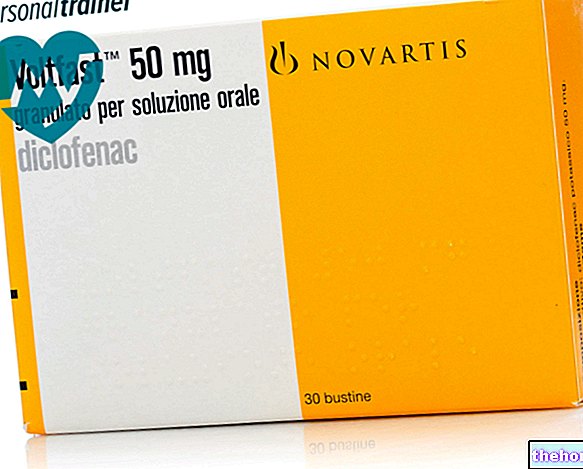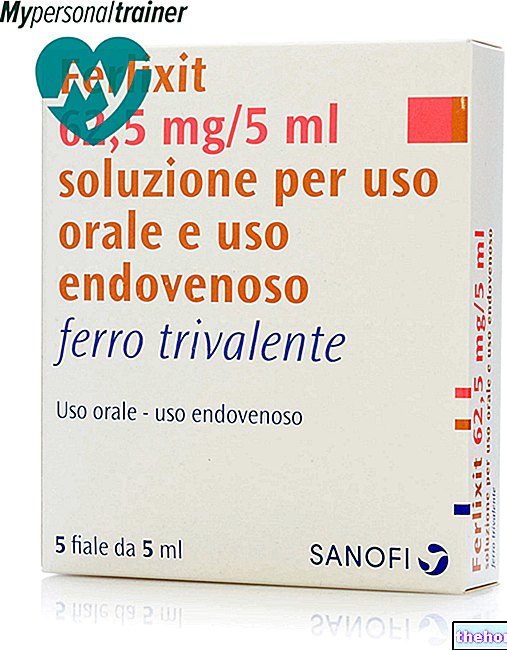Active ingredients: Calcium carbonate
Metocal 1250mg Tablets
Source Package Leaflet: AIFA (Italian Medicines Agency). Content published in January 2016. The information present may not be up-to-date.
To have access to the most up-to-date version, it is advisable to access the AIFA (Italian Medicines Agency) website. Disclaimer and useful information.
01.0 NAME OF THE MEDICINAL PRODUCT
METOCAL
02.0 QUALITATIVE AND QUANTITATIVE COMPOSITION
Each tablet contains:
ACTIVE PRINCIPLE
Calcium carbonate 1250 mg (equal to 500 mg of calcium)
EXCIPIENTS
Pregelatinised starch, Xylitol, Mannitol, Croscarmellose, Colloidal anhydrous silica, Magnesium stearate, Corn starch, Tutti frutti flavor.
03.0 PHARMACEUTICAL FORM
Chewable tablets.
04.0 CLINICAL INFORMATION
04.1 Therapeutic indications
Treatment and prevention of calcium deficiency.
Pathological states in which "increased calcium intake is required."
04.2 Posology and method of administration
Adults: Osteoporosis and states of calcium deficiency in general: two chewable tablets per day (equal to 1 gram of calcium), unless otherwise judged by the doctor.
Children: Calcium deficiency during the growth period: one or two chewable tablets per day according to age, according to the doctor's judgment.
The tablets should preferably be taken with meals.
Strictly adhere to the medical prescription.
04.3 Contraindications
Individual hypersensitivity to product components or strictly related substances from a chemical point of view.
Hypercalcemia and hypercalciuria (for example in the case of hyperfunction of the parathyroid gland, vitamin D overdose, plasmacytoma and bone metastases).
In case of prolonged immobilization, accompanied by hypercalcemia and / or hypercalciuria, calcium treatment should only be started when mobilization is resumed.
Calcic lithiasis (kidney stones).
Severe renal insufficiency.
04.4 Special warnings and appropriate precautions for use
Calcium salts administered in high doses and / or for prolonged periods can cause hypercalcemia especially in subjects with renal insufficiency. They must therefore be used with caution and only when indispensable in carriers of kidney and cardiovascular diseases.
In case of prolonged treatments, it is necessary to periodically check the calcium, whose levels must be kept within values of 9-10 mg%, and the calcium and, depending on these, possibly reduce the dose.
Like all drugs, the product must be kept out of the reach of children.
04.5 Interactions with other medicinal products and other forms of interaction
Unless otherwise indicated by the doctor, do not combine products containing vitamin D; in case of association, it is necessary to regularly measure the calcium in the blood and urine.
In case of concomitant treatment with digitalis, since serious disturbances in heart function may occur due to synergism on the heart, the administration of calcium (especially if associated with vitamin D) requires regular surveillance and it will be the same doctor who will impose a schedule of checks. .
In case of concomitant treatment with oral tetracyclines, the administration of the two drugs should be separated by at least 3 hours.
In case of treatment with sodium fluoride products it is advisable to take the calcium away from the sodium fluoride.
To avoid possible interactions with other drugs, periodically report any other concomitant therapy to your doctor.
04.6 Pregnancy and breastfeeding
METOCAL can be indicated in case of increased physiological need, such as in the last months of pregnancy and during breastfeeding.
04.7 Effects on ability to drive and use machines
There are no known negative effects of the drug.
04.8 Undesirable effects
In case of hypercalcemia, nausea, vomiting, constipation, abdominal pain, thirst, polyuria, polydipsia, characteristic changes in the E.C.G.trace, arterial hypertension, vasomotor disorders can occur.
The child may experience stunted weight gain.
Gastrointestinal disturbances (represented by constipation, flatulence, nausea) and hypophosphataemia may occur rarely.
Reporting of suspected adverse reactions
Reporting of suspected adverse reactions occurring after authorization of the medicinal product is important as it allows continuous monitoring of the benefit / risk balance of the medicinal product. Healthcare professionals are asked to report any suspected adverse reactions via the national reporting system. "address: http://www.agenziafarmaco.gov.it/it/responsabili.
04.9 Overdose
In conditions of normal metabolism no intoxication resulting from the intake of high doses and / or for long periods of calcium salts has never been observed. However, in subjects with renal insufficiency or cardio-vascular diseases, the appearance of alkalosis and hypercalcemia which manifest themselves with nausea, vomiting, constipation, abdominal pain, thirst, polyuria, polydipsia, characteristic changes in the ECG trace, arterial hypertension, vasomotor disturbances.
Treatment: interruption of calcium administration, rehydration and, depending on the severity of the intoxication, administration of diuretics and cortisones.
05.0 PHARMACOLOGICAL PROPERTIES
05.1 Pharmacodynamic properties
Calcium is a very important element for the human organism as a constituent element of the bone substance and essential for a whole series of functions such as the activity of muscles and nerves, the production and consumption of energy by cells and of mitochondria, the control of capillary permeability and the regulation of hormonal metabolism.
The administration of calcium salts in a high dose is necessary in those physiological or pathological conditions in which the dietary intake is insufficient or inadequate.
05.2 Pharmacokinetic properties
The calcium contained in METOCAL is absorbed in quantities corresponding to 20 - 40% of the ingested dose. This share decreases with increasing age and, especially in elderly patients, can be reduced by up to a tenth; in case of calcium deficiency or reduced calcium intake, absorption can be higher.
The calcium in ionic form is absorbed in the intestine with an active transport mechanism through a specific transport protein. The excretion occurs mainly in the faeces and partly in the urine.
The normal level of serum calcium is between 8.8 and 10.4 mg / 100 ml. About 40% of the calcium contained in the serum is bound to whey proteins, the remaining 60% is constituted by ionized calcium and calcium bound to complexes (mainly phosphate and citrate) and is filterable at the glomerular level. The amount of ionized calcium (about 50% of the calcium contained in the serum) depends on the pH: it increases in the case of acidosis and decreases in the case of alkalosis.
Regardless of these variations in solubility as a function of pH, the total amount of calcium in the serum depends on intestinal absorption, renal excretion and intense bone calcium exchange.
Calcium homeostasis is regulated by parathyroid hormone (PHT) and vitamin D.
05.3 Preclinical safety data
Animal experimentation has not provided any elements that indicate the existence of embryotoxic, mutagenic and / or carcinogenic properties of calcium taken in higher than physiological doses.
06.0 PHARMACEUTICAL INFORMATION
06.1 Excipients
Pregelatinised starch, Xylitol, Mannitol, Croscarmellose, Colloidal anhydrous silica, Magnesium stearate, Corn starch, Tutti frutti flavor.
06.2 Incompatibility
No chemical and physical incompatibilities have been found with other medicinal products.
06.3 Period of validity
The tablets must be used within 4 years from the date of manufacture indicated on the package. This expiry date refers to the product in intact packaging, correctly stored.
06.4 Special precautions for storage
Store away from humidity.
Do not store above 25 ° C.
06.5 Nature of the immediate packaging and contents of the package
Box of 60 chewable tablets
06.6 Instructions for use and handling
Orally chewable tablets. The tablets should preferably be taken with meals
07.0 MARKETING AUTHORIZATION HOLDER
Madaus GmbH - 51101 Cologne - Germany
Dealer for sale: TEOFARMA s.r.l. - Via F.lli Cervi, 8 - 27010 Valle Salimbene (PV)
08.0 MARKETING AUTHORIZATION NUMBER
AIC N °: 029472014
09.0 DATE OF FIRST AUTHORIZATION OR RENEWAL OF THE AUTHORIZATION
Date of first authorization: 28.07.1998
Renewal date: 19.08.2008
10.0 DATE OF REVISION OF THE TEXT
November 2014




























